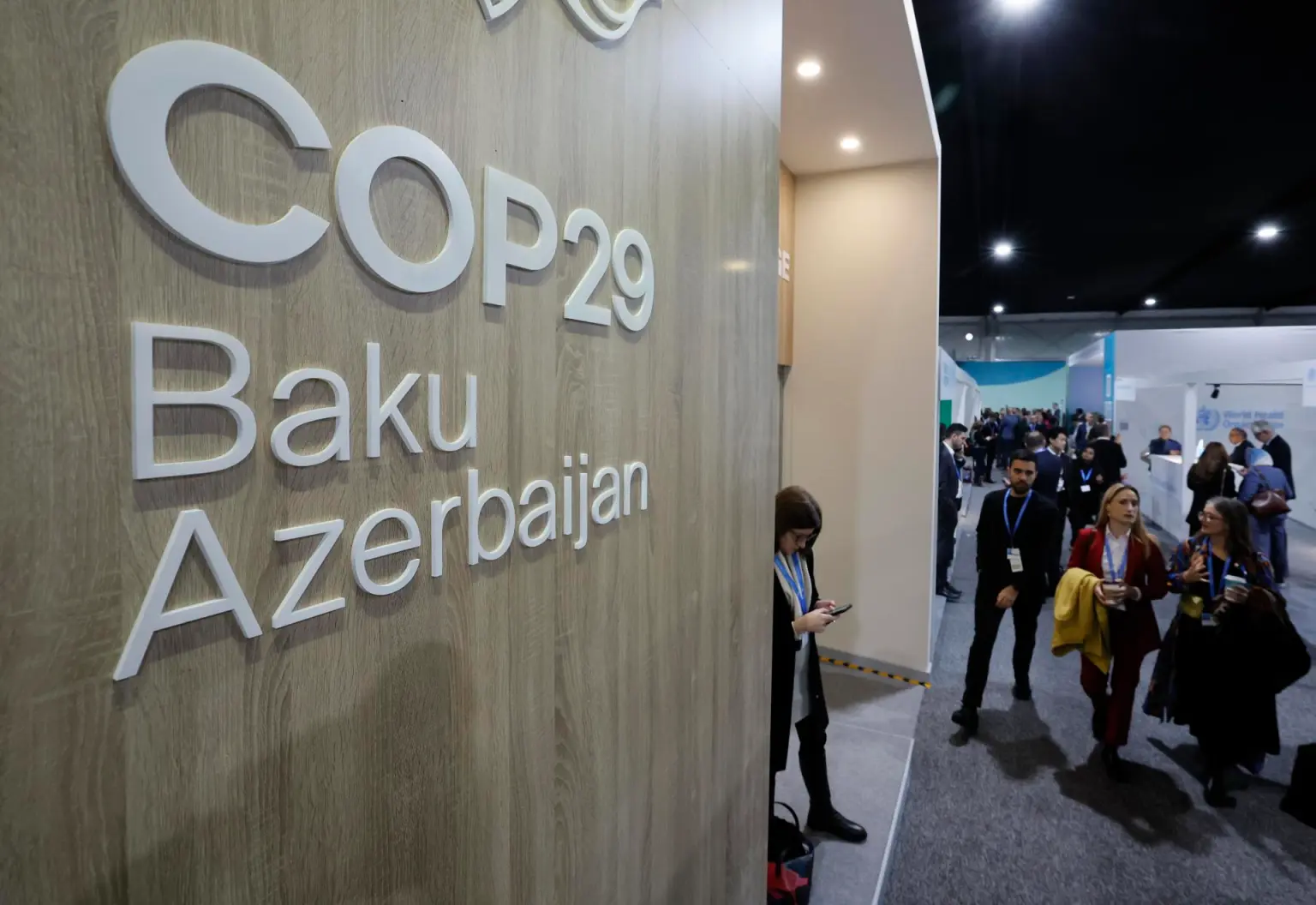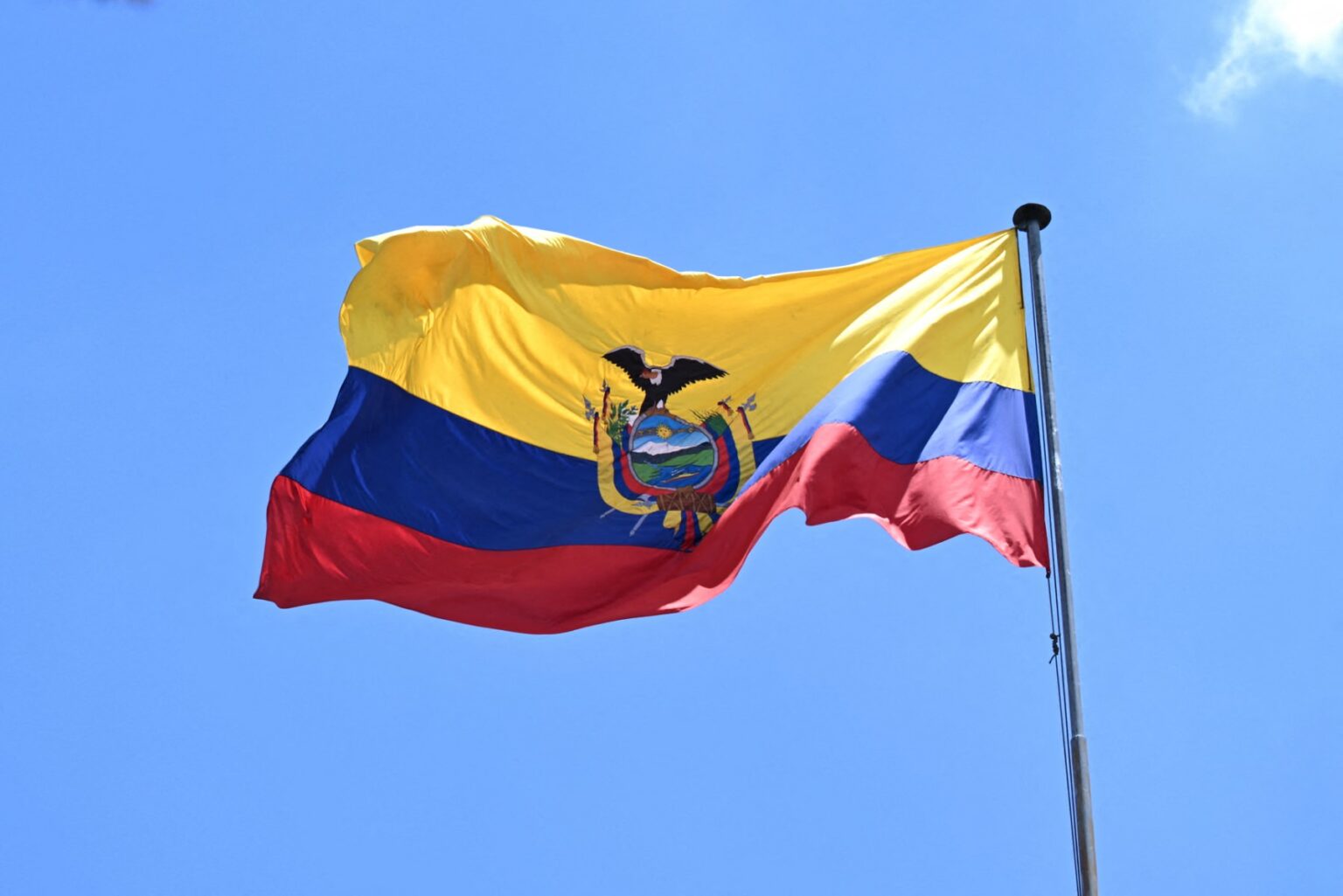International
Possible lack of final agreement overspeaks Baku summit negotiations

Baku can go down in history as another failed climate summit, adding to the list of COPs that ended in failure; with a bad agreement, as in Copenhagen (2009) or without agreement, as in the summit in The Hague (2000).
This is raised in the conversations that negotiators, observers and journalists have this Saturday in the corridors of COP29, after the 24 hours of extension of a summit that was supposed to end on Friday afternoon and in full “chaos” after dozens of countries left the room where the draft of the potential agreement was being negotiated.
The analysts and observers consulted, as well as the negotiating teams, agree to underline the “especially chaotic” end of this summit, from which a not too encouraging outcome is expected: either a “bad agreement” – that does not meet the needs of the Global South to face the climate challenge – or, directly, without agreement.
Pessimism invaded the spaces of the summit that hosts these days the capital of Azerbaijan, and in which about 200 states have been negotiating for two weeks how to finance climate action, especially in those low-income countries and vulnerable to the impacts of global warming.
Everyone mentions the ghost of the failed summits in The Hague and Copenhagen, cases that they would like to avoid, because they fear that going through another failure like this would further undermine the already weaken confidence in multilateralism.
Some developing countries leave the trading room
In addition, small island states and some Africans left the negotiation room where they met the presidency’s latest proposal for the agreement on climate financing that finalizes COP29, where they said they did not feel heard.
Political representatives of the negotiating group that brings together the least developed countries, as well as that of the small island states claimed to have come to the climate summit in Baku to close “a fair agreement” on climate financing, but they have felt “hurt” by not being consulted.
“There is an agreement to be closed and we are not being consulted. We are here to negotiate, but we are leaving because at the moment we do not feel that we are being heard,” said the head of the negotiating group of the island countries, Cedric Schuste, in statements to the media.
“We do everything we can to build bridges with literally everyone. It is not easy, neither in financing nor in mitigation,” stressed the European Commissioner for Climate Action, Wopke Hoekstra, to emphasize that “it is fair to ask that we be constructive.”
Some Latin American and Caribbean states, which are trying to build bridges between the least developed and rich countries, expressed their refusal to admit that this Baku summit is closed without an agreement.
“We cannot leave Baku or Copenhagen,” said Panama’s special climate envoy, Juan Carlos Monterrey, in reference to the climate summit held in the Danish capital in 2009, a meeting that the international climate community considered a failure, by not reaching any agreement.
“We are already at a point of not only building bridges, but walking on those bridges,” Monterrey said, after detailing that the countries had left the consultation mainly because of their discrepancies regarding the total amount that rich countries suggest mobilizing to pay for the climate transition and adaptation to the inevitable impacts of global warming.
“The great struggle is the figure,” said Monterrey, since developing countries at this point support that the goal is 300 billion dollars per year by 2035, and developing and emerging economies ask for 500 billion dollars annually and by 2030.
Lack of transparency in the process
Panama’s main negotiator, Ana Aguilar, also criticized the lack of transparency in the process, something she blamed on the Azerbaijani presidency of the summit, which according to her has had more meetings with some parties than with others, and has been three days without favoring negotiations more than bilaterally.
“We have a problem,” said Colombian Minister Susana Muhamad, who claimed that there is still a long distance between the amount that rich countries propose to mobilize and that requested by those that developing countries.
The proposal of the presidency of the COP29, as reflected in a negotiating text made public on Friday, was that the awealing countries pay 250 billion dollars a year by 2035 to the states of the Global South, to help them pay for action against climate change, a phenomenon to which they hardly contribute but of which they are the main victims.
Now there is talk of 300 billion dollars, while the largest group of developing countries demands at least 500 billion.
The dispute is especially in the quantum, Muhamad said, but also “in some of the requirements that I think we can achieve through negotiation,” he said.
“The problem is that it has been published very late, it was published yesterday. The deadline is very short, so we have some countries, those that have less financial capacity, that do not feel satisfied,” explained Muhamad, who added that “we need them to be able to move and deliberate.”
The Colombian minister said that she will encourage rich countries “to take a step forward” and, she added, “it is very important that they do so so that we can move forward and carry out this negotiation.”
International
Colombia to Send High-Level Delegation to Ecuador to Ease Trade Tensions

Colombia’s Ministry of Foreign Affairs confirmed on Friday that, at the instruction of President Gustavo Petro, a high-level delegation will travel to Ecuador in an effort to normalize bilateral relations, which have deteriorated following the imposition of reciprocal tariffs.
“In line with Colombia’s policy of good neighborliness and the spirit of cooperation and integration that guides its foreign policy,” the Foreign Ministry said in a statement, adding that the delegation will be led by Foreign Minister Rosa Villavicencio and Defense Minister Pedro Sánchez.
“Following instructions from the Presidency of the Republic, and as has been publicly reiterated, the Colombian delegation expects to reaffirm Colombia’s offer of support to the Republic of Ecuador to strengthen control over phenomena stemming from transnational organized crime,” the statement said.
The Foreign Ministry noted that the delegation will attend the meeting with a full willingness to engage in dialogue and to seek concrete solutions to the unilateral measures that have affected the longstanding relationship between the two neighboring countries.
Trade tensions between Ecuador and Colombia escalated on January 21, when Ecuadorian President Daniel Noboaimposed a 30% tariff on Colombian products, citing a lack of cooperation in anti-drug efforts. Colombia responded with similar measures and the suspension of energy exports, while Ecuador increased transportation costs for Colombian crude oil.
Business associations in both countries have warned that the dispute is harming both economies and have called on the governments to resolve their differences through dialogue.
International
Super Bowl Halftime Show Puts Bad Bunny—and Immigration Politics—Back in the Spotlight

The long-standing argument that sports and politics should not mix may be put to the test on Sunday during the Super Bowl halftime show, which will be headlined by Puerto Rican superstar Bad Bunny, a choice that has sparked backlash from segments of the U.S. right wing.
Just one week after his headline-making appearance at the Grammy Awards—where he sharply criticized the United States’ anti-immigration policies—Bad Bunny will once again take center stage on the global spotlight with his performance at the NFL final in Santa Clara, California.
Beyond the expectations surrounding the show itself, speculation has grown over whether the artist could again use the platform to protest policies associated with the administration of former President Donald Trump, in front of an audience expected to exceed 120 million viewers in the United States alone.
In fact, one of the most popular Super Bowl prop bets this year revolves around whether the Puerto Rican singer will deliver a direct message against ICE (U.S. Immigration and Customs Enforcement), similar to the one he delivered at the Grammys last Sunday.
While few expect Bad Bunny to repeat such a pointed statement, the mere speculation highlights the delicate balance the NFL must manage during the most-watched broadcast of the year.
The world’s most powerful sports league has drawn criticism from the MAGA movement since announcing in September that Bad Bunny would headline a halftime show largely performed in Spanish.
Trump himself declined to attend the matchup between the New England Patriots and the Seattle Seahawks, despite having made history last year as the first sitting U.S. president to attend a Super Bowl. He described the musical lineup—which also includes outspoken critics such as Green Day—as “a terrible choice” that would “sow hatred.” In response, his supporters have organized an alternative event dubbed the “All-American Halftime Show,” featuring like-minded artists such as Kid Rock.
International
Venezuela Debates Broad Amnesty Law Covering 27 Years of Chavismo

Venezuela’s Parliament began debating on Thursday a sweeping amnesty bill that would cover the 27 years of Chavismo in power, while explicitly excluding serious human rights violations and crimes against humanity.
The proposed legislation, titled the “Amnesty Law for Democratic Coexistence,” was introduced by interim President Delcy Rodríguez, who assumed power following the capture of Nicolás Maduro during a U.S. military operation.
The legislative session was convened for Thursday afternoon, with lawmakers holding an initial discussion focused on the general principles of the bill. This phase precedes a consultation process with civil society, after which the proposal will move to a final debate examining each article individually.
According to a draft of the bill obtained by AFP, the amnesty would apply to individuals accused of crimes such as “treason,” “terrorism,” and “incitement to hatred,” charges that were frequently brought against political prisoners over the past decades. The scope also includes offenses ranging from acts of rebellion to punishments imposed for social media posts or messages sent through private messaging services.
The bill’s explanatory text emphasizes reconciliation, stating that it seeks to move away from “vengeance, retaliation, and hatred” in favor of “opening a path toward reconciliation.”
However, the proposal explicitly excludes from its benefits crimes such as “serious human rights violations, crimes against humanity, war crimes, intentional homicide, corruption, and drug trafficking.”
These exclusions, the text notes, are based on strict compliance with the Venezuelan Constitution, which already prohibits granting amnesties or pardons for such offenses.
-

 International4 days ago
International4 days agoDelcy Rodríguez Takes Control of Chavismo as Venezuela Enters a U.S.-Supervised Transition
-

 International4 days ago
International4 days agoHRW Warns Trump’s Influence Has Weakened Human Rights in Latin America
-

 International3 days ago
International3 days agoDíaz-Canel Calls for Talks With Washington Without Pressure as U.S. Tightens Oil Sanctions
-

 Central America3 days ago
Central America3 days agoPanama Will Not Be Threatened, President Says Amid Rising Tensions With China
-

 International3 days ago
International3 days agoVenezuela Debates Broad Amnesty Law Covering 27 Years of Chavismo
-

 International2 days ago
International2 days agoColombia to Send High-Level Delegation to Ecuador to Ease Trade Tensions
-

 Central America3 days ago
Central America3 days agoBukele’s Approval Rating Climbs to 91.9% in El Salvador, Survey Shows
-

 Central America19 hours ago
Central America19 hours agoSalvadoran fans plan birthday surprise for Shakira at historic show
-

 Sports17 hours ago
Sports17 hours agoShakira ignites El Salvador with near sold-out residency at Mágico González Stadium
-

 International2 days ago
International2 days agoSuper Bowl Halftime Show Puts Bad Bunny—and Immigration Politics—Back in the Spotlight


























